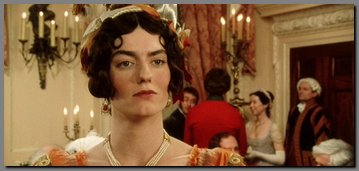Blog Assignments:
- intro to your critic: photos, central contribution to lit crit and wiki info
- connect 'Idea' to 4 elements
- link 'Idea' to N. Frye's 2nd chapter
- talk about where you are in DQ and what you think about it
- talk about what you understand from N. Frye
- write about other people's blogs
- become obsessed with a box from the grid

comedy section: 'A Midsummer Night's Dream'
William Blake is ESSENTIAL to understanding N. Frye
"Sancho, my friend, know that I was born, by the will of heaven, in this our iron age, to revive the one of gold, or the Golden Age, as it is called. I am he for whom are reserved dangers, great deeds, valiant fears. I am, I repeat, he who is to revive the Knights f the Round Table, the Twelve Peers of France, the Nine Worthies, he who is to make the world forget the Platirs, Tablants, Olivants, and Tirants, the Phoebuses and belianises, and the entire horde of famous knights errant of a bygone age, by performing in this time in which I find myself such great and extraordinary deeds and feats of arms that they will overshadow the brightest they ever achieved" pg 142 D. Q.
- he wants to revive the Romantics
- quixotic figure: like Oscar Wilde- completely dedicated to an ideal
- create through imagination a world that is not really there
- it has a 'dark side' though: living in a different world, creating something that is not there, turning yourself into a fool- or 'tilting at windmills'
- "mad as a hatter" ~Lewis Carroll
- "not making fun of someone is worse, because then you have to 'humor' people" ~Dr. Sexson
- 'humoring' them is one of the worst things that you can do "We laugh at something that points out another's errors, lack of intelligence, or unfortunate circumstances; granting a sense of superiority." ~wiki humor article
"'I'm of the same opinion,' said the barber. 'And so am I,' added the niece. 'Well, then,' said the housekeeper, 'hand them over and into the corral with them.' They handed them to her, and there were a good many of them, and she saved herself a trip down the stairs and tossed them all out the window." pg 47 of D. Q.
- burn the books! Like Ray Bradbury
An example of a great reader: "Miss Eliza Bennet," said Miss Bingley, "despises cards. She is a great reader, and has no pleasure in anything else." "I deserve neither such praise nor such censure," cried Elizabeth; "I am NOT a great reader, and I have pleasure in many things." ~Pride and Prejudice chpt 8

80-90% of people didn't read a single book last year
Book banning:
- Harry Potter books by JK Rowling
- The Joy of Gay Sex by Edmund White
- Of Mice and Men by John Steinbeck
- The Adventures of Huckleberry Finn by Mark Twain
- for a complete list of books challenged between 1990-2000
*The people that ban these books decide to throw out certain books that they didn't like
*If literature is ever banned the only way to know it is to memorize it
a very funny episode of Friends with Joey's 'air quotes'
Ramon Fernandez from 'Idea'
Audiences in 'Idea':
- she is the sea's audience
- the people in the poem are watching her
- us as readers are also an audience
when the singing stops, the world is changed
Wallace Steven's '13 Ways of Looking at a Blackbird'
innuendos: you live in irony all the time, words are suggestive
Lolita's first lines: "Lolita, light of my life, fire of my loins. My sin, my soul. Lo-lee-ta: the tip of the tongue taking a trip of three steps down the palate to tap, at three, on the teeth. Lo. Lee. Ta. She was Lo, plain Lo, in the morning, stating four feet ten in one sock. She was Lola in slacks. She was Dolly at school. She was Dolores on the dotted line. But in my arms she was always Lolita." ~Vladimir Nabokov
 elegy: form of poetry that speaks about tragedy
elegy: form of poetry that speaks about tragedyAristotle: all of the pieces fit together, if you remove one part, it all falls apart
special effects:
- aren't organic
- shallow outlook
- plot is the most important
Frankenstein's monster evokes pathos because he wants a family and friends but never can
 tragedy according to Aristotle's Poetics: isolation from a community
tragedy according to Aristotle's Poetics: isolation from a communityPathos: heroic, but not pathetic


No comments:
Post a Comment